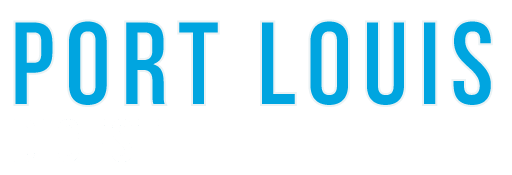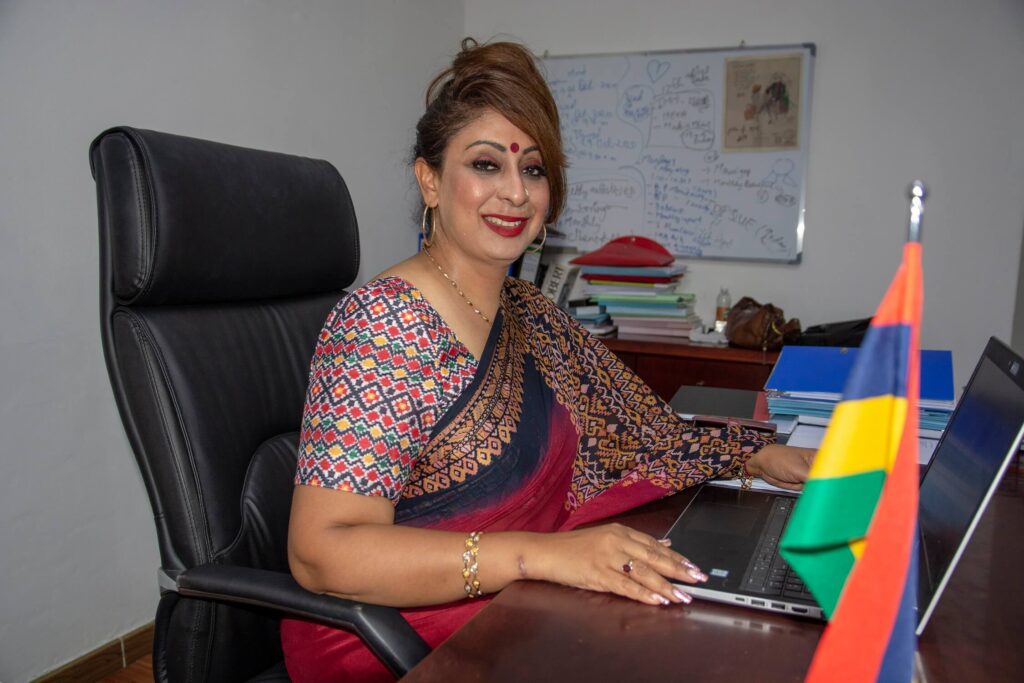Sandhya Boygah | General Manager, MSB
Nestled in the green decor of Montagne Ory, the Mauritius Standards Bureau plays a key role for the protection of Mauritian consumers. Behind its discreet facade, scientific laboratories daily inspect goods waiting to be released from customs. Furthermore, as guardian of ISO certifications, the MSB guarantees the adherence to the highest forms of quality procedures. Mrs Sandhya Boygah, the Managing Director, gives us a detailed overview of the MSB’s operations.
Mrs Sandhya Boygah can you share with us what are the main missions of the Mauritius Standards Bureau?
As its name itself indicates, the Mauritius Standards Bureau (MSB) is the national standards body of Mauritius. It was created in 1975 as the technical wing of the Ministry of Industry and Commerce. And, under the Standards Act 1975, the Bureau was mandated to, inter-alia, develop standards, conduct testing and calibration and certify products and management systems according to relevant applicable standards. It changed its status from governmental to corporate body in 1993 through the enactment of the Mauritius Standards Bureau Act 1993.
In a nutshell, the main objectives of the Bureau are to:
- promote and encourage standardization and quality assurance in industry and trade;
- prepare, frame, amend and revise standards;
- provide testing, certification and technical investigation services;
- hold and maintain the national measurement standards and provide traceable calibration services;
- advise the Government on policies relating to Standardization, Metrology, testing and Quality Assurance; and
- provide training in the field of Quality Assurance, Standardization and related subjects.
These missions entail a great responsibility towards consumers of all ages so that the best quality products and the safest products, in line with strict standards, are released in the country. The MSB inspectors have to maintain vigilance at all times to ensure that risky products are prevented from entering the Mauritian market. Actually, the Bureau is the first meeting point of a product in Mauritius, even before it goes through Customs. Once the products lands in our country, the MSB has to do its due diligence and check whether the products come with the appropriate and verified documents and do not cause any hazards to the final consumers.
Until the conformity report is not delivered by the MSB, the goods cannot be released from Customs. In parallel, therefore, it also has to manage time properly so that goods are not held at the port unnecessarily if they arrive with the proper certificates and give satisfactory results to further inspection at the laboratories. This is why the MSB has decided to operate on a First Come First Serve basis.
Does the MSB operate as a centralised or decentralised organisation?
The headquarters of the Mauritius Standards Bureau are located at Moka. The 4 000 m2 building comprises of purpose-built testing and calibration laboratories and corporate offices. There are five separate and distinct Technical Units.
These are namely:
- the Standards Development Units for the elaboration of standards,
- the Engineering Unit and Chemical Unit for the Product Testing,
- the Quality Assurance Unit for Product Management Systems Certification and Training and
- the Metrology Unit for the Custody of National Measurement Standards and for industrial Calibration.
Moreover, since year 2019, under the Coordinated Border Management Service scheme launched by the Mauritius Revenue Authority (MRA), the MSB has been allocated space for a sub-office at the MRA Customs House at the port. This office is dedicated to Conformity Assessment purposes and was launched on the 25th of January 2019. In line with the national objective to facilitate trade, representatives of other key agencies are also housed there notably, the National Plant Protection Office, the Government Pharmacist, the Food Import Unit and the Veterinary Services Division of the Ministry of Agro-Industry and Food Security.
This proximity facilitates cross institutional understanding and interactions. And it is to be noted that Mauritius was one of the first countries to adopt the Trade Facilitation Agreement (TFA) among more than 100 countries in 2017. And since 2018, Mauritius has been consistently ranked among the top 20 countries in the world for its ease of doing business. It has progressed towards the 13th place in 2019 which is laudable for an island. This high ranking in ease of doing business indicates that the regulatory environment is truly more conducive to business operations.
How does the Conformity Assessment sub-office operate?
The location at the port itself facilitates interaction with the importers and brokers who have to submit a list of relevant documents to the Conformity Assessment office. Amongst the required documents, we find application forms, the third-party certificates, invoices, Bills of Entry and so on. In order to speed up this whole process, and, also in the context of the pandemic, since the end of year 2020, both importers and brokers have been granted access to register themselves with the MNS. Therefore, they can now submit applications through a single window system by MNS.
After the administrative procedures are engaged, the MSB proceeds to the conformity assessment per se. Now, some products are called regulated products. These must obligatorily be accompanied by third party certificates, which are verified by the Conformity Assessment office. Furthermore, when applicable, a sample verification has to be made in the designated laboratory. As conformity assessment is performed for regulated products falling under different Regulations, therefore expertise from different fields are required.
The table below lists the regulated products and the laboratories which have to do the testing.
Regulations | Products | Lab Involved |
Consumer Protection (Safety Requirements) Regulations 2019 | Helmets, gas lighters, gas regulators, gas hose, outboard motors | Mechanical Engineering Laboratory |
Electric cables, Hair dryers, Fans, Ovens, Microwave Ovens, Coffee or Tea Makers, Vacuum | Electrical and Electronics Engineering Laboratory | |
Residual Current Device | ||
Electric Water Heater | ||
Cement | Civil Engineering Laboratory | |
Plastic and Polyethylene Pipes and Fittings (Mauritius Standard Specifications) (Amendment) Regulations 2019 | Plastic pipes and fittings | Civil Engineering Laboratory |
Excise Act / Excise Regulations | Air Conditioners | Mechanical Engineering Laboratory |
What is the next step after the Conformity Assessment is done?
Following the Conformity Assessment, a conformity report is issued to the importer or the broker. The conformity report is essential to obtain clearance of goods from Customs. In case of non-conformity, the importer has to decided what has to be done with the goods, either sent back to the seller or sold off to a buyer from another country.



Comments are closed.